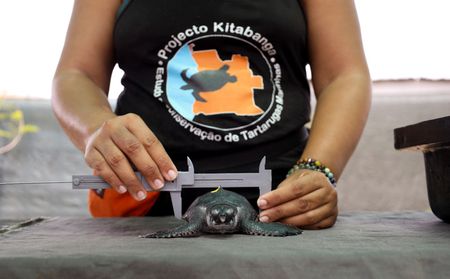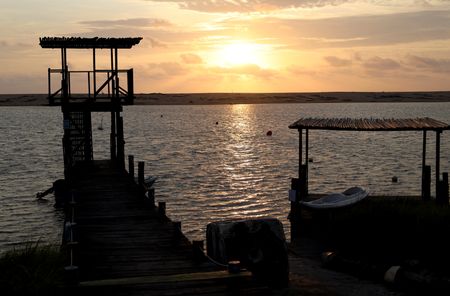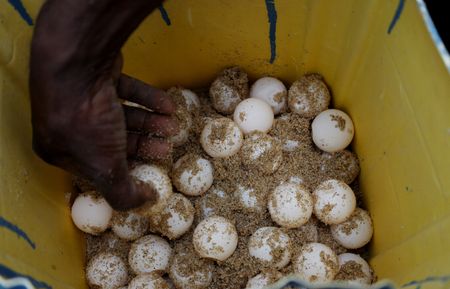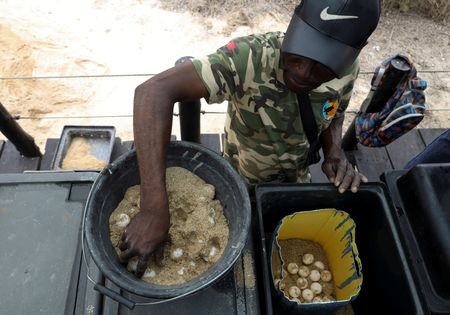HOJIUA, Angola (Reuters) -Once a sea turtle hunter, Joaquim Avelino Fragoso now patrols Angola’s Longa estuary to protect the very creatures he once killed.
"I like to watch the turtles when they come out to lay their eggs on land, and then go back into the sea," Fragoso told Reuters in Hojiua village, a place of lush mangroves, lagoons and stretches of sand interspersed with bush and forests.
"I no longer have that urge to hunt them," said the 45-year-old, who used to kill sea turtles for their meat.
The father of seven is among around 70 villagers who have been trained in conservation as part of a project to protect the turtles that ply Angola's 1,600 km (1,000 mile) coastline. The local Kitabanga Project covers some 25,000 turtle nests overall.
The message: that business as usual will mean there soon won't be any turtles.
"We have to conserve them so that there will be more turtles tomorrow," said Fragoso, whose coastal home is about 220 km (135 miles) south of Angola's capital, Luanda.
All five species of eastern Atlantic sea turtle - which range from vulnerable to critically endangered on the International Union for Conservation of Nature's Red List - are found in Angolan waters.
Longa's caramel-coloured beaches are the nesting areas for the olive ridley turtle and the jellyfish-munching leatherback.
The conservation project, funded by the private sector and implemented by non-governmental organisation Kissama Foundation and Universidade Agostinho Neto, Angola's oldest university, trains communities to protect the endangered creatures.
Persuading people to stop hunting requires addressing the poverty that gives rise to it and showing the economic gains that can come from wildlife protection, says Debora Carvalho, regional coordinator of Kitabanga Project in Cuanza Sul, where Longa is located.
"The normal thing is that people say, no, we don't care, ...and then we need to talk, teach and show how this can be a very good thing for them, said Carvalho.
Fragoso now earns money from his turtle conservation work.
(Editing by Tim Cocks and Ros Russell)












